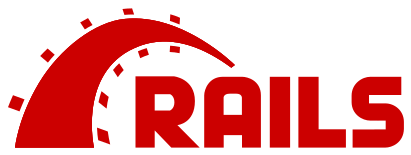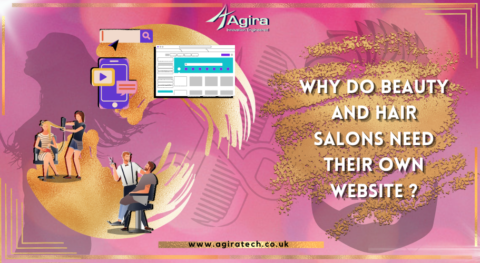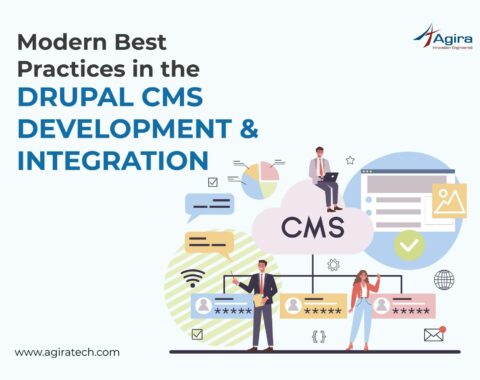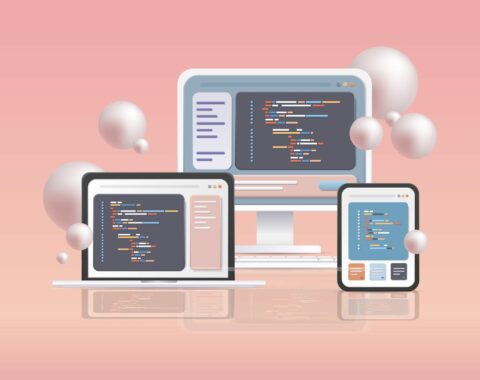Table of Contents
Django vs. Ruby on Rails! Are you wondering which framework would be best for your web development project?
Well, this one of the most debated topics in the world of programmers. With a large number of frameworks, it quite confusing for the developers and entrepreneurs to choose the most appropriate framework for your project requirements.
As you might have already known, both Django and Ruby on Rails are widely popular with a large community base. Developers love these frameworks for thier efficiency and performance. But, they do have some similarities, advantages over the other, and additional features. In this article, we can explore the similarities and differences between Django vs. Ruby on Rails.
What is Django Framework?
Django is an open source web framework written in Python programming language. The framework is managed by an independent non-profit organization, Django Software Foundation. Django was build to simplify the complex development process and is widely used to build database-driven applications. Django helps in maintaining web applications and to eliminate repetitive tasks. As it created on multiple design philosophies, which helps the developers in rapid development.

Pros of using Django Framework
- High customization
- Scalability
- Exclusive Admin Panel
- Simple syntax
- Highly compatible with databases and OS
- Mature software with multiple plugins
- REST framework
- Supports MVC framework
Cons of using Django Framework
- Based on ORM
- App components are tightly coupled
- Monolithic
- Requires more coding
Use cases – Companies using the Django framework
- Youtube
- Spotify
- The Washington Post
- Mozilla
What is Ruby on Rails Framework?
Rails is a server-side framework written on Ruby programming language. It is widely popular because of its rapid web application development approach. It is ideal for building a database-backed web application. Rails have many build features and are based on MVC (Model-View-Controller). Developers can eliminate repetitive tasks as it primarily functions of two principles, Don’t Repeat Yourself (DRY) and Convention Over Configuration (COC).

Pros of using Ruby on Rails Framework
- Rapid development
- Versatile set of tools and presets
- Integrations with multiple plugins
- Easy to migrate and modify
- Testing environment
Cons of using Ruby on Rails Framework
- More difficult to create API
- Documentation quality and standard differ
- Lower flexibility
- Low runtime speed
Use Cases – Companies using Ruby on Rails
- Basecamp
- Airbnb
- Hulu
- SlideShare
- Fiverr
Django vs. Ruby On Rails – A Detailed Comparison
Language
Even though Django is relatively new, its framework is backed by Python. One of the powerful programming languages launched back in 1995. Whereas, Rails was built using Ruby, introduced in 2004. Python is widely used for its code simplicity and readability. Python is easy to learn. On the other side, Ruby has a simple syntax that allows the developers to enjoy writing the language. The apps built on both these languages have a more similar look and functionalities. But there a few differences behind the scenes.
Architecture
One of the vital aspects to consider in web development is the architecture of the application. Both frameworks have implemented the MVC (Model-View-Controller). In the words of Django, it is MVT (Model-View-Template), but both are identical and have a little bit of difference.
In Django as a controller it represents Model as a data structure, the view is the URL dispatcher to control what appears for the users, Template is the web template that merges with the Django template language (DLT).
The Ruby on Rails template represents the server information such as images, comments, and messages. Everything is taken care of with the help of an active record. Here the View is the information in the HTML template which will be later sent to the controller. The action controller links the Model and View to manage the browser requests.
User Interface
Both frameworks have an excellent interface. Django and Ruby on Rails have all the capabilities to offer high end-user experience. This allows the development of companies and developers to create highly functional and complex applications packed with features. add-ons and plugins.
Speed and Performance
When comparing Rails and Django, Rails is fast and beats over Django. It is mainly because of its rich repository of plugins and libraries which is offering incredible performance. On the other side, Django facilitates speeding up the development process, which makes it a good enough choice for any web development. As these frameworks are backed with modern programming languages, both have high performance and also offers extensive tools to optimize the application.
Stability
Stability is another vital element in web development. And both framework allows innovation and stability. Ruby on Rails allows the developers to reuse the code to eliminate the dependencies. It uses a configuration convention method to complement the programming efforts. Django on the other side follows a more conventional approach thus provide stability as required.
Installation
The installation process of both frameworks is pretty much easy to set up. Django installation process is really simple, it can be done within a minute or two.
When it comes to Ruby on Rails, you should have an understanding of Gems and bundles which is required in the installation process of Ruby’s packages. You can download and then run the command Gem to install the latest version of the Rails framework.
Security
Security factors have become a crucial part of any website or mobile application. In comparison with Django vs. Rails. Certainly, Django is ahead with the high security from Python. It is backed by middleware. While Rails is backed by active files. Django offers tools to protect the app from SQL injection, cross-site scripting, and many more. However, Rails is also a reliable option in the terms of security.
Scalability
Rails have better scalability over Django which results from attributes like code flexibility and freedom of use. Both the frameworks are heavyweight web development as it is designed keeping scalability in mind. Ruby is Rails is leading the way in an aspect of scalability.
Syntax
Ruby on Rails has very versatile syntax. It is not always beneficial. It can cause problems and confusion while working in teams. Python makes it easy to debug with higher code readability.
Principles of Development
Principles bind the whole web development process. Django runs on two primary principles – DRY (Don’t Repeat Yourself) and “Explicit is better than implicit.” It allows the developers to create easy to understand software which can be managed by other team members. In case of issues or when the modification is needed in the future. Ruby on Rails also uses DRY and Convention on Configuration which increases the efficiency and effectiveness of software development.
Documentation
Documentation makes it easy for developers to understand the development process and make it easy to find answers to the questions. Both the frameworks have quite simple and clear documentation which is more adequate for record the web development projects.
HTML Template
The core features of Django and Ruby on Rail is a template. Django uses a simple template language that allows the developers to use minimal code and HTML. On the other hand, Rails is more complex even to individual templates.
Community Support
Django is an open source platform with access to a wide range of libraries and tools both paid and free. The community has over 11,000 users with around 4000 products. Ruby on Rails has an active community of 5000 programmers who have contributed to Gems and improvising the framework.
Learning Curve
Python is easy to learn which also makes learning Django a piece of cake. There are numerous sources available to learn in online as well as offline. Whereas, Rails has a very steep learning curve, which means you need to have prior experience to learn Rails. So, it is recommended and used only by experienced Ruby developers.
Django vs. Ruby On Rails – Which Framework to Choose?
Both Django and Ruby on Rails are the best ones giving away a tough battle when compared. There are some places one framework takes over the other. But, on the whole, choosing a suitable framework depends on what your web development requires.
For instance, If you are building a full feature-packed web application, Django is an ideal framework to work. Moreover, if you want to release a website or web app within a limited time, Ruby on Rails is will the perfect option. Ruby on Rails focuses on shortcuts and has configuration features to build web applications faster with incorporating complex functionalities.
Bottom Line
Coming to the very first question, Django or Ruby on Rails – which one is a better framework? Simply, it hard to answer. Both frameworks are successful in a variety of tasks.
Both frameworks have excellent features and passionate community that makes web development easier. As long your approach is strategic, you can analyze the desired element required for your app or incase if you like to make any modification with your existing application. Django’s popularity is growing faster in contrast to Ruby on Rails. Yet, it is a rock-solid framework to build fully optimized and high scalable websites.
If you still have trouble choosing a framework, feel free to get guidance from the technology experts. Agira Technologies has experienced web developers who have worked on multiple technology stacks and highly user-friendly web applications. Get in touch to share your concerns, and let us help you decide on the best framework for your project.
Already have a project idea ready? Find out how much the web app development can cost you here!










